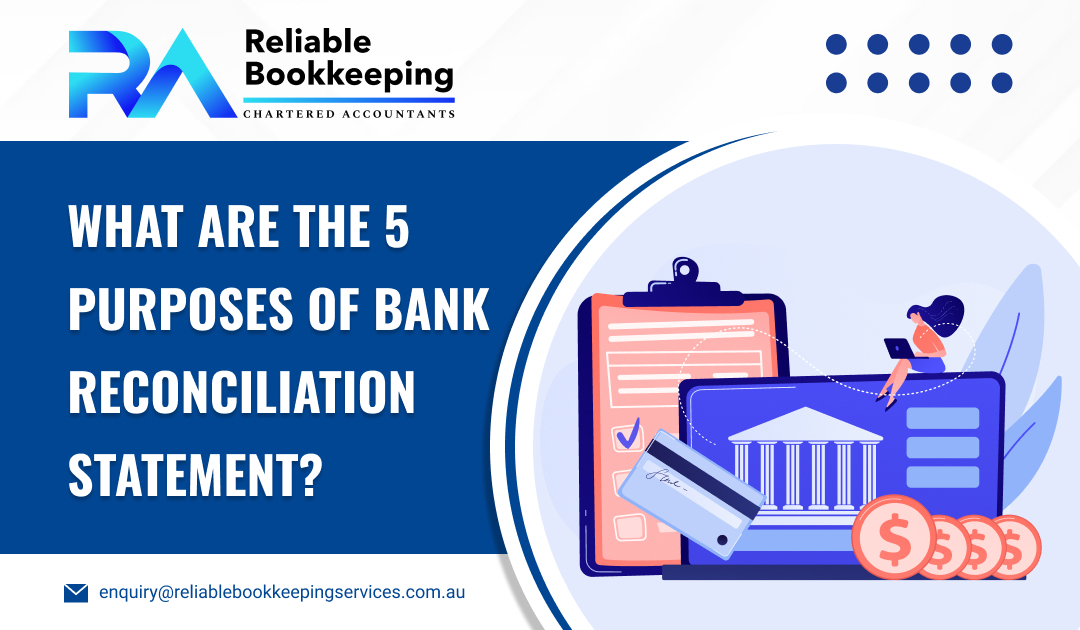Maintaining financial records accurately is important for business success in the fast-paced world of finance. One crucial aspect of this process is the preparation of a bank reconciliation statement. Bank account reconciliation helps in enhancing business financial accuracy. In this blog post, we’ll share information on the importance of bank account reconciliation and how it can help simplify your financial operations.
Understanding Bank Account Reconciliation
Bank account reconciliation ensures comparing your business’s financial records with the records given by your bank in the form of bank statements. The primary purpose of bank reconciliation is to address and resolve discrepancies between these two records. With the popularity of digital transactions, maintaining bank account reconciliation is a challenging task. Digital payments help in business growth, so it is crucial to do bank account reconciliation frequently as per your business requirements. If you are busy handling other important tasks of your business, you can get bookkeeper services in Melbourne for your business.
Importance of Preparing a Bank Reconciliation Statement
Bank account reconciliation stands as a crucial financial practice for any business. It involves comparing records of financial transactions in a company’s accounting system with the records given by the bank. Here are some reasons why it is crucial to reconcile your bank accounts:
- Detecting Errors
Errors can happen with a single missed financial transaction. These mistakes range from simple data entry errors to more complex issues like entering data twice or incorrect deposit amounts. With bank account reconciliation, you can easily identify errors early on and resolve them on time, ensuring the accuracy of your records.
- Spotting Fraudulent Activities
Fraudulent activities can occur if you don’t track your financial records or transactions. Bookkeepers in Melbourne can help you reconcile your bank accounts. Bank account reconciliation can help identify any fraudulent transactions or unauthorised activities that may have happened. By comparing your internal financial records with your bank statements, you can identify discrepancies or unfamiliar financial records, allowing you to take action to prevent further losses.
- Tracking Cash Flow
Cash flow management is an indispensable part of any business. Bank account reconciliation makes you able to track your income and expenses accurately. By reconciling your bank statements frequently, you can address any unexpected bank fees or delays in deposits, ensuring that your cash flow is optimised.
- Correct Financial Reporting
Ensuring timely and accurate financial reporting is essential for making well-informed business decisions. By reconciling your bank statements, you can guarantee that your financial statements accurately represent your company’s true financial standing. This accuracy provides stakeholders with the right information to check the health of your business. Financial reporting is also important for preparing for tax season. It helps small business tax accountants to prepare and file tax returns.
- Save Money
Bank reconciliation can help you save money by alerting you to the subscriptions and services you’re consistently paying for but not using. This includes services you may have signed up for as a free trial, only to have your card automatically charged at the end of the trial period. While you can cancel these subscriptions immediately, you could waste a lot of money if you only discover the automatic payments several months later.
How Does Bank Reconciliation Work?
- Gather Documents: Get bank statements and internal records, such as payments, receipts and deposit slips.
- Compare Outstanding Balances: Verify whether the initial balances in the company’s financial records align with those in the bank statement.
- Identify Deposits: Match bank deposits with internal records, including deposit slips and cash receipts.
- Detect Withdrawals: Align bank withdrawals with internal documentation. Additionally, verify the dates and amounts to ensure they match.
- Reconcile Outstanding Checks: Match checks issued with those cleared.
- Reconcile Outstanding Deposits: Match deposits made with those credited. Outstanding deposits are made by the company but have to be credited to the bank account.
- Consider Charges and Interest: Compare bank fees and interest earned.
- Adjust Records: Make necessary changes based on comparisons.
- Reconcile Closing Balances: Ensure closing balances of the company’s accounting records and bank statement match.
- Document Reconciliation: Create a statement detailing the process and adjustments.
Conclusion
The blog shares the significance of reconciling bank accounts. You can get Reliable Bookkeeping Services for your business in which bank account reconciliation service will also be included.

